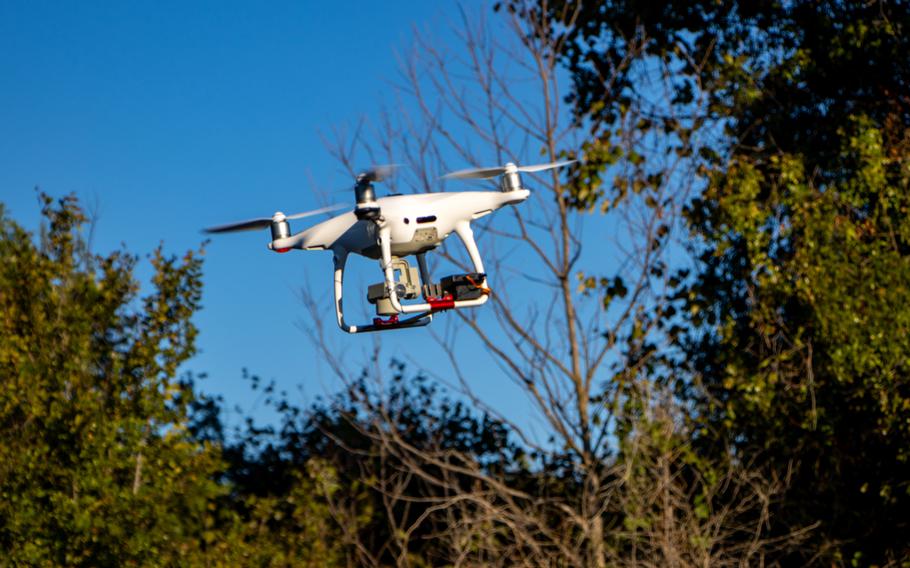
A drone flies at Fort Cavazos, Texas, in October 2023. (U.S. Army)
WASHINGTON — Shooting drone video footage of national defense sites would be treated as a crime and punishable with imprisonment under new legislation introduced by two military veterans in Congress.
The Espionage Act of 1917 already prohibits the photography of sensitive military sites but the statute makes no mention of videography — an omission that Reps. Jen Kiggans, R-Va., and Don Davis, D-N.C., hope to correct.
Their proposed bill would amend the law to include “video” in the list of criminal information-gathering means to address a growing use of drones by adversaries such as China.
The lawmakers said Congress needed to take swift action as adversaries increasingly attempt to obtain unauthorized access to aerial footage of defense sites.
“As a Navy veteran who represents of one of the most military-heavy districts in the country, I know how critical it is to safeguard our national defense infrastructure and protect sensitive national security information,” Kiggans said.
The Drone Espionage Act would hold bad actors accountable, impose serious repercussions and protect national security, she said.
Last year, Kiggans was among scores of lawmakers who raised alarm over a spate of mysterious drone sightings in Virginia’s Hampton Roads area, which is home to 18 military installations and 120,000 active-duty, Reserve and civilian personnel.
Drones were also spotted along the East Coast, most prominently in New Jersey.
The White House has repeatedly denied any malicious activity, saying some of the drones were authorized for research purposes while others were a combination of lawful commercial drones, hobbyist drones and law enforcement drones.
Lawmakers continue to remain concerned about foreign surveillance, however.
A Chinese citizen living in California was sentenced to four months in prison late last month for flying a drone for nearly an hour over Vandenberg Space Force Base in November and taking aerial photos of the installation.
The man, a lawful permanent resident of the U.S., had conducted a search for the phrase “Vandenberg Space Force Base Drone Rules” and messaged with another person about hacking his drone to allow it to fly higher than it could otherwise, according to the Justice Department.
He was arrested prior to boarding a flight to China and pleaded guilty to one federal count of violating the national defense airspace. His sentence also includes a year of supervised release and $225 in fines.
Those caught taking video of a military site, particularly using a drone, with the aim of harming national defense would be subject to a fine, 10 years of imprisonment or both under the legislation proposed by Kiggans and Davis.
“We need a common-sense approach to protect our military installations and safeguard classified information,” said Davis, a former Air Force officer.